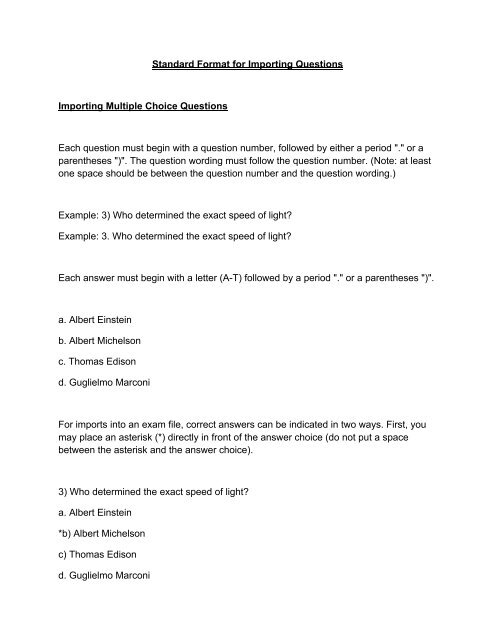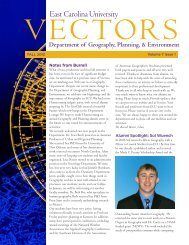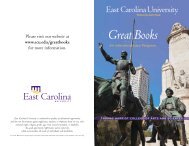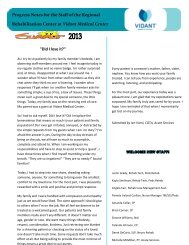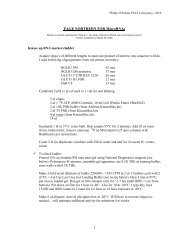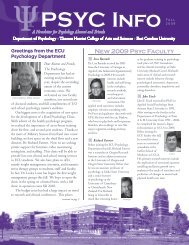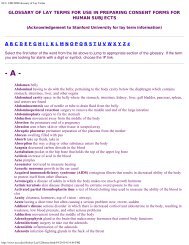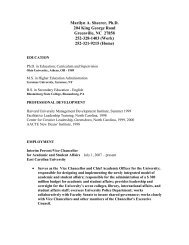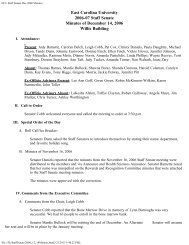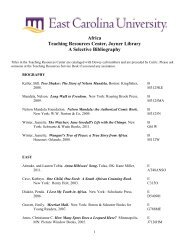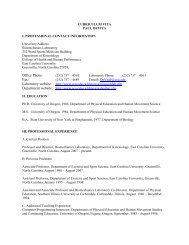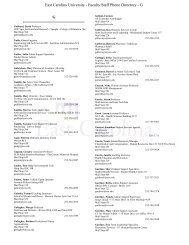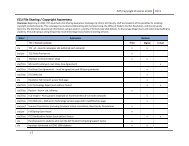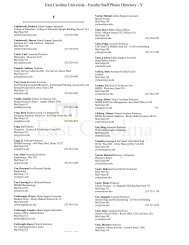Standard Format for Importing Questions Importing Multiple Choice ...
Standard Format for Importing Questions Importing Multiple Choice ...
Standard Format for Importing Questions Importing Multiple Choice ...
Create successful ePaper yourself
Turn your PDF publications into a flip-book with our unique Google optimized e-Paper software.
<strong>Standard</strong> <strong>Format</strong> <strong>for</strong> <strong>Importing</strong> <strong>Questions</strong><br />
<strong>Importing</strong> <strong>Multiple</strong> <strong>Choice</strong> <strong>Questions</strong><br />
Each question must begin with a question number, followed by either a period "." or a<br />
parentheses ")". The question wording must follow the question number. (Note: at least<br />
one space should be between the question number and the question wording.)<br />
Example: 3) Who determined the exact speed of light?<br />
Example: 3. Who determined the exact speed of light?<br />
Each answer must begin with a letter (A-T) followed by a period "." or a parentheses ")".<br />
a. Albert Einstein<br />
b. Albert Michelson<br />
c. Thomas Edison<br />
d. Guglielmo Marconi<br />
For imports into an exam file, correct answers can be indicated in two ways. First, you<br />
may place an asterisk (*) directly in front of the answer choice (do not put a space<br />
between the asterisk and the answer choice).<br />
3) Who determined the exact speed of light?<br />
a. Albert Einstein<br />
*b) Albert Michelson<br />
c) Thomas Edison<br />
d. Guglielmo Marconi
The second option is to place a list of correct answers at the end of the file. The list<br />
must begin with the word "Answers:" and must be positioned at the end of the file.<br />
(Note: Any text after the answer list will be ignored.)<br />
Example: Answers:<br />
1. A<br />
2. C<br />
3. B<br />
4. B<br />
<strong>Importing</strong> True and False <strong>Questions</strong><br />
The process of importing "true and false" questions is similar to that used <strong>for</strong> importing<br />
multiple choice questions (see above). Both of the following examples are valid ways to<br />
<strong>for</strong>mat a true and false question <strong>for</strong> importing purposes.<br />
Example: 3) Albert Michelson determined the exact speed of light?<br />
*a) True - or - *a. T<br />
b) False b. F<br />
It’s important to note that the "True" (or "T") answer choice must be listed prior to the<br />
"False" (or "F") answer choice in order <strong>for</strong> Respondus to recognize it as a true and false<br />
question type. (If "False" appears first in the list, the question will be imported as a<br />
"multiple choice" question).
A second way to designate a correct answer <strong>for</strong> a true and false question is to place it in<br />
a list of correct answers at the end of the file. The list must begin with the word<br />
"Answers:" and must be positioned at the end of the file. (Note: Any text after the<br />
answer list will be ignored.)<br />
The correct answer <strong>for</strong> a true and false question can be designated in three ways: (1)<br />
the complete word "True" or "False," (2) the letter "T" or "F," or (3) the alphabetical letter<br />
"A" (<strong>for</strong> true) or "B" (<strong>for</strong> false). For example, the <strong>for</strong>matting of each of the following<br />
answers is acceptable <strong>for</strong> true and false questions in which all of the answers are "true":<br />
Example: Answers:<br />
1. True<br />
2. T<br />
3. A<br />
<strong>Importing</strong> Essay <strong>Questions</strong><br />
The logic <strong>for</strong> importing essay questions is similar to what is described above <strong>for</strong> <strong>Multiple</strong><br />
<strong>Choice</strong> and True & False questions. The primary difference is that the first line of<br />
<strong>for</strong>matting must begin with "Type: E". This is followed the question number, and the<br />
question wording.<br />
Example: Type: E<br />
4. How is the Michelson-Morley experiment related to Albert Einstein's theory of<br />
relativity?
<strong>Importing</strong> Fill in the Blank <strong>Questions</strong><br />
Fill in the blank questions may be imported by starting the first line of <strong>for</strong>matting with<br />
"Type: F". This is followed by the question number, and the question wording.<br />
Example: Type: F<br />
5. Who is known as the "father of television"?<br />
Respondus allows only one correct answer per question, but it does permit you to enter<br />
multiple <strong>for</strong>ms of that answer.<br />
a. Zworykin<br />
b. Vladimir Zworykin<br />
c. Vladimir Kosma Zworykin<br />
Answers can also be placed at the end of the file, using a <strong>for</strong>mat similar to multiple<br />
choice questions. The only difference is that you can enter multiple <strong>for</strong>ms of an answer<br />
by repeating the question number.<br />
Example: Answers:<br />
1. A<br />
2. C<br />
3. B<br />
4. C<br />
5. Zworykin<br />
5. Vladimir Zworykin<br />
5. Vladimir Kosma Zworykin<br />
6. B
<strong>Importing</strong> <strong>Multiple</strong> Fill in the Blanks <strong>Questions</strong><br />
Fill in multiple blanks questions may be imported by starting the first line of <strong>for</strong>matting<br />
with "Type: FMB". This is followed by the question number, and the question wording<br />
with the words to be filled in provided in [square brackets]. The wording can include up<br />
to 10 [words] to be filled in, each of which can have up to 20 correct answers.<br />
Example: Type: FMB<br />
5. A [rose] by any other [name] would smell as [sweet].<br />
Respondus allows multiple correct answers per blank to be specified by separating<br />
each correct answer inside the brackets with commas.<br />
Example: Type: FMB<br />
5. A [rose, red flower] by any other [name] would smell as [sweet, good].<br />
<strong>Importing</strong> Matching <strong>Questions</strong><br />
The process of importing a "matching" question is similar to what is described above <strong>for</strong><br />
importing multiple choice questions, but there are some key differences. The first line of<br />
<strong>for</strong>matting must begin with "Type: MT". This is followed by the question number and the<br />
question wording.<br />
Each answer (which consists of both parts of a correct match) must begin with a letter<br />
(a-t) followed by a period "." or a parentheses ")". The two parts of the match must be<br />
separated with an "=" symbol and there should not be any hard returns or blank lines<br />
within either parts of the answer.
Example: Type: MT<br />
4) Match the correct name to the discovery or theory.<br />
a. Michelson-Morely = Speed of light<br />
b. Einstein = Theory of Relativity<br />
c. Marconi = radio waves<br />
Spaces be<strong>for</strong>e or after the "=" symbol are optional, but it is important that an answer<br />
only uses the = symbol <strong>for</strong> the purpose of separating the two parts of the match. If you<br />
plan to list correct answers <strong>for</strong> other questions at the bottom of the document, simply<br />
skip the number <strong>for</strong> all questions that are of the matching variety.<br />
<strong>Importing</strong> Ordering <strong>Questions</strong><br />
Ordering questions may be imported by starting the first line of <strong>for</strong>matting with "Type:<br />
ORD". This is followed by the question number, the question wording, and the answer<br />
choices which must be in the correct order.<br />
Example: Type: ORD<br />
5. Put the following presidents in order of service?<br />
a. George Washington<br />
b. John Adams<br />
c. Thomas Jefferson<br />
d. James Madison<br />
e. James Monroe
<strong>Importing</strong> Jumbled Sentence <strong>Questions</strong><br />
Jumbled Sentences may be imported by starting the first line of <strong>for</strong>matting with "Type:<br />
JUM". This is followed by the question number and question wording with the phrases to<br />
jumble in [square brackets].<br />
Example: Type: JUM<br />
6. A [rose] by [any other name] would [smell] as [sweet].<br />
<strong>Importing</strong> "<strong>Multiple</strong> Answers" <strong>Questions</strong><br />
The logic <strong>for</strong> importing questions that have multiple answers is similar to what is<br />
described above <strong>for</strong> importing multiple choice questions. (<strong>Multiple</strong> Answers questions<br />
are, essentially, multiple choice questions in which more than one correct answer can --<br />
and generally should -- be selected by the student). The primary difference is that the<br />
first line of the <strong>for</strong>matting must begin with "Type: MA". This is followed by the question<br />
number, and the question wording. Correct answers are designated with an asterisk.<br />
Example: Type: MA<br />
3) Which of the following individuals are credited with determining the exact speed of<br />
light?<br />
a. Albert Einstein<br />
*b. Albert Michelson<br />
c. Thomas Edison<br />
*d. Edward Williams Morley
A second way to designate correct answers <strong>for</strong> questions with multiple answers is to<br />
place them in a list of correct answers at the end of the file. The list must begin with the<br />
word "Answers:" and must be positioned at the end of the file. If a question has been<br />
designated as a <strong>Multiple</strong> Answers type using "Type: MA", then correct answers can be<br />
shown in a list in one of three ways: (1) placing a blank space between the letters<br />
representing the correct answers, (2) placing a comma between the letters representing<br />
the correct answers, or (3) placing a comma and a blank space between the letters<br />
representing the correct answers. For example, the <strong>for</strong>matting of each of the following<br />
answers is acceptable <strong>for</strong> multiple answer questions.<br />
Example: Answers:<br />
1. B D<br />
2. B, D<br />
3. B,D<br />
Important: Once the import file is organized to the specifications described<br />
above, it should be saved to a rich-text (.rtf), text (.txt), or Microsoft Word (.doc)<br />
file. It is then ready to be imported by Respondus.


